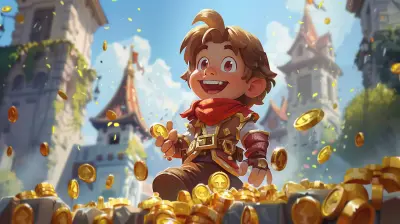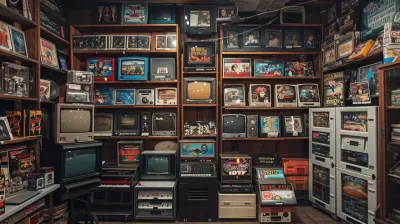Solving Analysis Paralysis: Tips for Faster Gameplay
9 September 2025
So, picture this: You're playing your favorite strategy game, deep in thought, staring at your screen or board like it's going to whisper the answer to you. You've been hovering over the same move for ten minutes—your teammates are yawning, your cat's asleep on the keyboard, and even your coffee has gone cold. Welcome to the wonderful world of analysis paralysis, my friend.
If you've ever spent more time thinking than actually playing, you're not alone. We've all been there—stuck in decision limbo, afraid to make the “wrong” choice and doom our glorious gaming empire (or at least lose a round in Catan). But fear not! We're diving into how to solve analysis paralysis and speed up your gameplay—without launching your brain into meltdown mode.
Let’s crank up that APM (actions per minute), breathe some life back into your game night, and stop taking so long that your opponents forget which game they’re playing.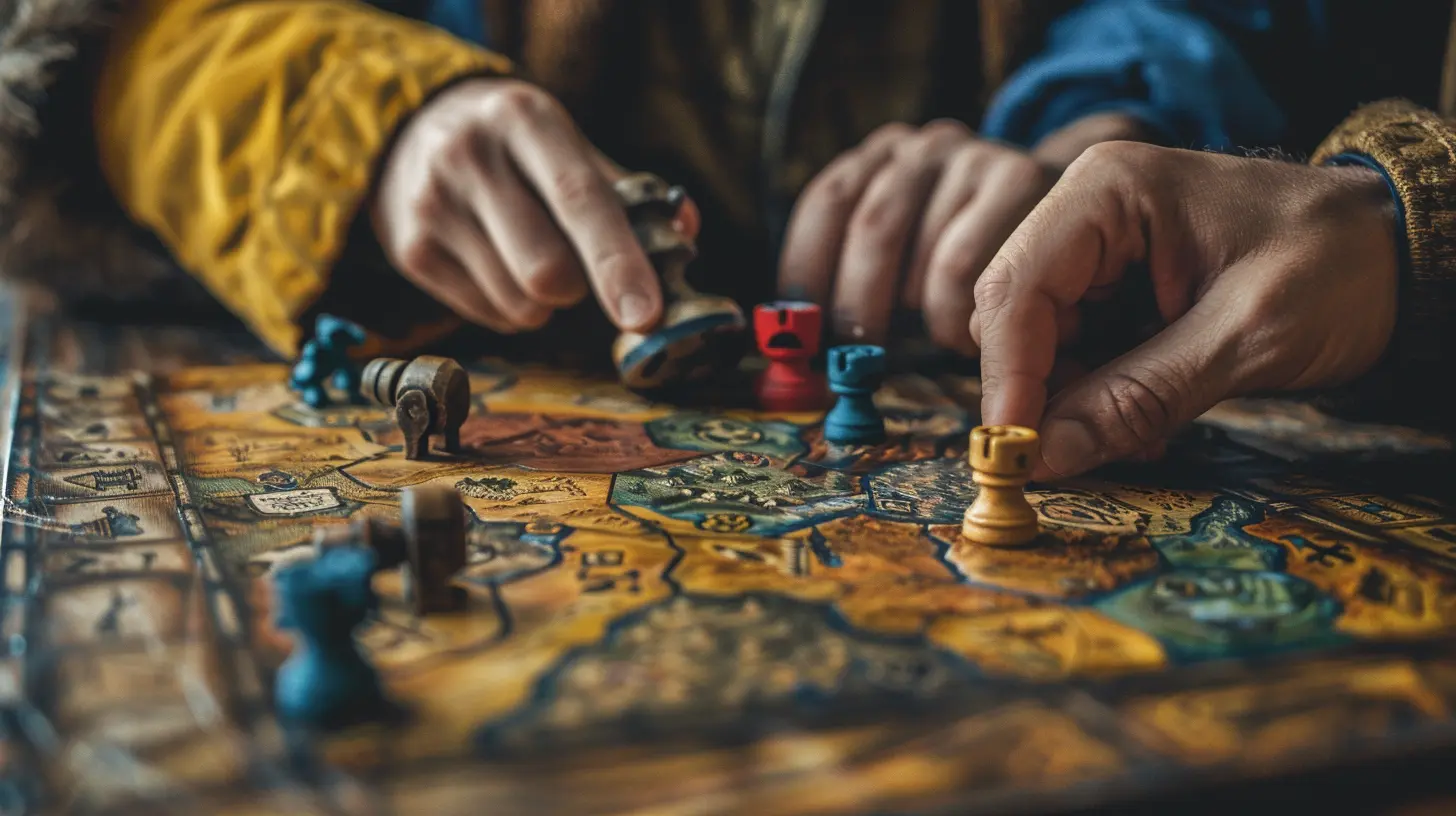
What Is Analysis Paralysis Anyway?
Imagine your brain being a super-powerful computer running 127 tabs at once…and then crashing. That, my friend, is analysis paralysis. It's when you overthink every move because you're trying to calculate all the possible outcomes, risks, and options.In gaming terms, it’s the enemy of pace, flow, and fun. You get stuck deep in decision territory, frozen like a Meowth in a Pokéball. Whether it’s turn-based strategy games, tabletop RPGs, or even competitive card games, analysis paralysis can grind the game to an excruciating halt.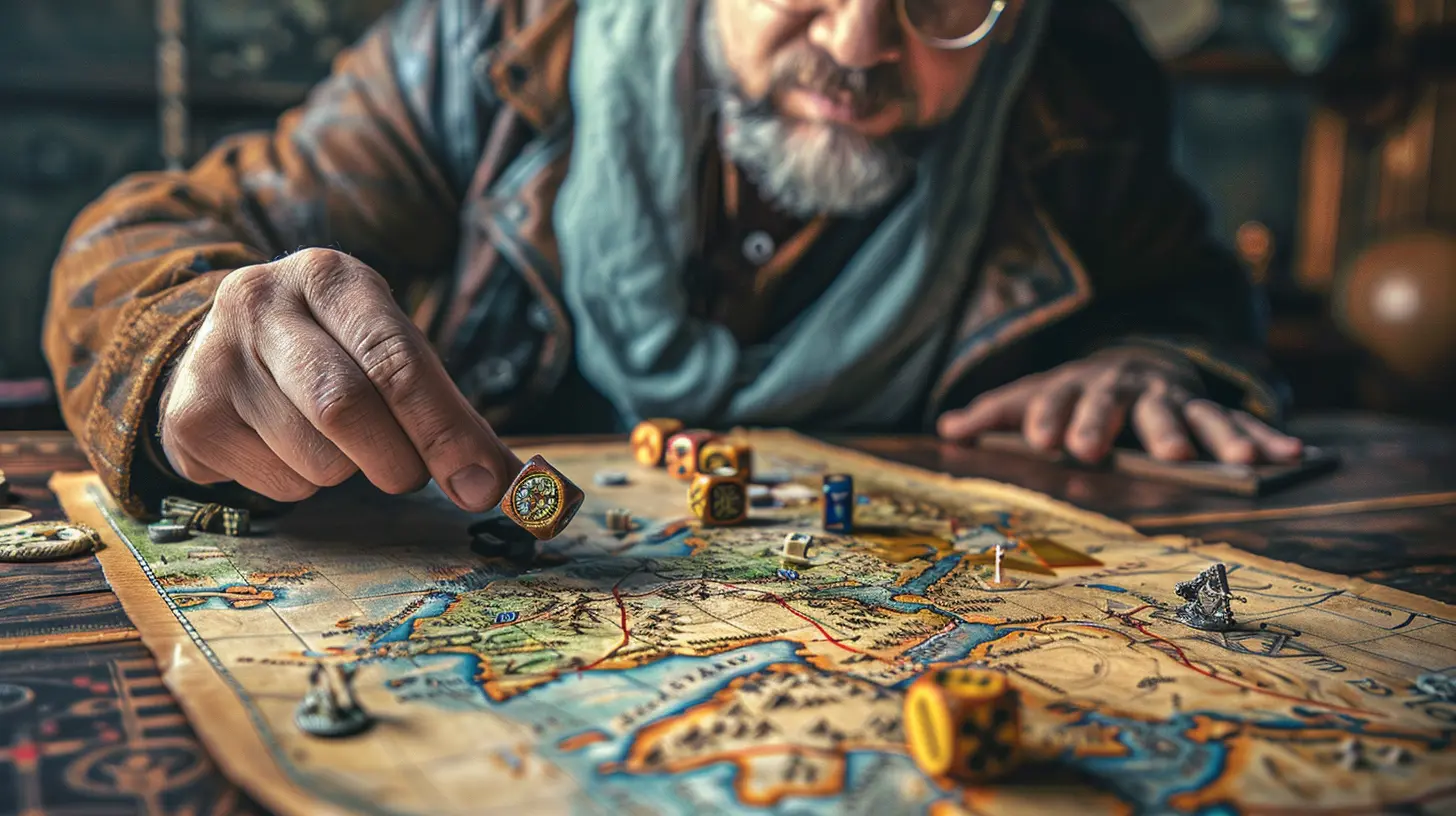
Why It Happens (Yes, You’re Not Just Being Slow)
Let’s play armchair psychologist for a second, shall we? Analysis paralysis isn't just you being indecisive—it usually comes from one (or more) of these lovely culprits:- Fear of failure: You don’t want to make the “bad” move. Newsflash: sometimes there’s no perfect move. Just pick the one that doesn’t involve accidentally nuking your teammates (unless that’s the point of the game… looking at you, Among Us fans).
- Too many options: Games with complex mechanics and branching strategies can overwhelm players. Hello, Terraforming Mars—what even are you doing to us?
- Perfectionism: Trying to win every time? Yeah, no pressure. Spoiler alert: even the best players mess up. A lot.
- Inexperience: When you’re new to a game, you don’t have the instincts yet. That’s okay! You’ll get faster with time (unless it’s Monopoly, then please don’t).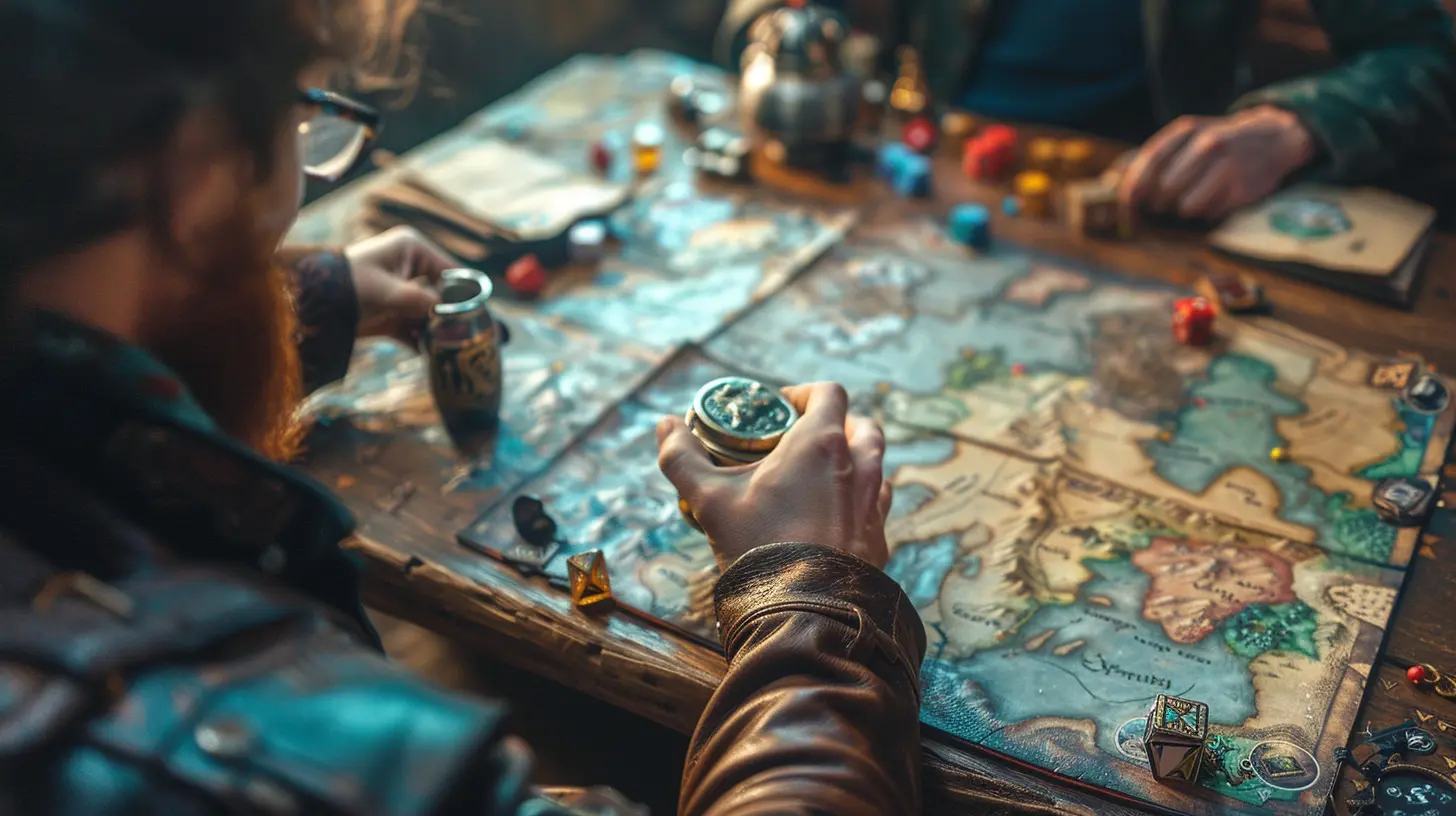
Tip #1: Set a Time Limit (No, Really. Use a Timer.)
You know when you give someone a deadline and suddenly they become a productivity machine? That works in games too.Use a turn timer. Whether it's a casual egg timer, a sand-filled hourglass from an old game box, or a fancy smartphone app that sounds like a nuclear countdown—put a cap on decision time.
Set a reasonable limit, like 60 to 90 seconds per turn. Not only will it boost the pace, but it’ll also add a sprinkle of pressure-filled fun. You’ll be amazed how quickly people start trusting their gut (or randomly picking something and praying). Either way, the game moves.
Bonus: Get a buzzer that makes a dramatic noise when time's up. That'll keep things spicy.
Tip #2: Embrace the Power of Your Gut
Your intuition? It's basically your personal gaming GPS. It might not always take the fastest road, but it usually gets you close to where you need to be.The trick is learning to recognize “good enough” moves instead of agonizing over “perfect” ones. In most games, there’s no such thing as perfectly optimal play unless you’re an AI trained on thousands of games. And last I checked, no one here is AlphaZero.
Not sure what to do? Ask yourself these:
- Does this move support my long-term goal?
- Will this move hurt me more than help?
- Will I regret this in 10 seconds?
If you yelled, “Oh no!” at the last one, maybe pick something else. Otherwise, roll with it and let future-you deal with the consequences. That’s what popcorn and rematches are for.
Tip #3: Plan Ahead—But Not Too Ahead
It’s good to think ahead, but if you’re plotting five turns into the future like you're writing a chess grandmaster’s memoir, you’re gonna burn out.Instead, plan for one or two moves ahead, then adapt. Games are dynamic—other players will mess up your plans anyway (especially Chad, who never plays by the rules). Having a flexible strategy keeps you thinking on your feet without drowning in decision trees.
Remember: It’s a game, not a 4D simulation of intergalactic politics… unless you’re playing Twilight Imperium, in which case, Godspeed.
Tip #4: Know the Game (and Practice Makes Kinda-Perfect)
This sounds obvious, but it’s surprisingly overlooked. The more you understand a game’s mechanics, objectives, and common strategies, the faster your decisions become.Spend some time watching tutorials, reading guides, or watching gameplay videos. (YouTube holes count as research, right?) After a while, your brain starts connecting the dots faster, and you’ll start playing like it’s second nature.
It’s like riding a bike—but with dragons. Glorious, pixelated dragons.
Tip #5: Don’t Be That Guy (a.k.a. Think on Other People’s Turns)
If you're sitting there doodling in your notebook (or worse, scrolling TikTok) while waiting for your turn, you’re wasting precious decision-making time.Instead, use other people’s turns to:
- Watch what they’re doing (and steal—er, adapt—their strategy)
- Consider your options in advance
- Mentally eliminate bad choices
When your turn arrives, you’ll already have a plan ready. Boom, turn taken in 15 seconds. Everyone applauds. You win… okay maybe not, but you get a pizza slice for effort.
Tip #6: Limit Your Options (Yes, You Can Say No to Choices!)
Got a hand of 11 cards and a board with 80 possible paths? No wonder your brain’s playing musical chairs with your neurons.Try mentally filtering out clearly bad options first. If something doesn’t help your goal or actively hurts you—toss it from your internal shortlist. Narrow your choices to the 2-3 best ones, then choose from those.
It’s like that closet full of clothes you never wear—once you remove the “meh” options, picking an outfit/game move becomes way easier.
Tip #7: Talk It Out (If the Game Allows It)
Playing a co-op game? Feeling overwhelmed? Say the words:> “Guys, help me out here.”
In team-based games like Gloomhaven, Spirit Island, or even Pandemic, talking through your options can clear your mind. Other players may spot obvious moves you missed, and sometimes just saying things out loud helps you process faster.
Caution: Avoid alpha-gamers who try to play everyone’s turn for them. If you hear “You should just do this,” followed by a 12-step plan involving unicorn tactics, feel free to throw a rulebook at them. Politely.
Tip #8: Practice Mindfulness (Wait, What? In Gaming?)
Hear me out.Sometimes, we overthink not because we’re over-intellectual, but because we’re overstimulated. You're tired. Distracted. Maybe rage-eating pretzels because your last move sucked.
Take a breath. Like, literally. One or two slow breaths can calm your brain, focus your thoughts, and clear the mental fog. It’s basically meditation—just with meeples and mana instead of candles and crystals.
Crazy idea: If you're super prone to analysis paralysis, build 10-second breathing breaks into your decision-making routine. Fast, focused, zen ninja gamer mode: activated.
Tip #9: Accept That Mistakes Happen (And That's Okay!)
Let’s get real: it’s a game. You're gonna mess up. You’re gonna pick the card that gives the win to someone else. You’ll forget you needed five gold, not four. Maybe you’ll even accidentally trade wood for sheep when you meant the other way around.It happens.
Mistakes are part of learning—and, arguably, make for the best stories. No one remembers the guy who played flawlessly. Everyone remembers the time someone tried to bribe the dungeon master with cookies.
Own it, laugh it off, and move on. The faster you get back in the game, the faster you become an absolute beast at every game night.
Bonus Tip: Play More Filler Games
If you or your group suffer from chronic analysis paralysis (yes, that’s a diagnosis now), try adding fast-paced “filler games” into your rotation.Games like:
- Sushi Go!
- Love Letter
- Coup
- Exploding Kittens (explosions = faster decisions, obviously)
These games are small, quick, and pressure players to make decisions fast. Plus, they help train your brain to make snap judgments, which improves your overall gaming stamina.
Think of it like CrossFit for your gray matter.
Final Thoughts: Don’t Let Overthinking Ruin the Fun
Games are supposed to be fun. They're not boardroom decisions or brain surgery. (Unless you're playing Operation, but let’s not go there.)The moment you stop having fun and start sweating over your next move like it’s the fate of civilization, it’s time to unplug the brain pressure cooker and remember: it’s just cardboard—and/or pixels.
Make a move, laugh at the consequences, and remember that win or lose, the best part of game night is playing with people (and crushing them mercilessly in the process—but with love).
all images in this post were generated using AI tools
Category:
Tabletop GamesAuthor:

Lana Johnson
Discussion
rate this article
1 comments
Phoebe Cole
Great tips! Overthinking can ruin fun; these strategies will definitely speed up gameplay.
September 16, 2025 at 4:58 PM

Lana Johnson
Thank you! I'm glad you found the tips helpful. Enjoy your gameplay!

